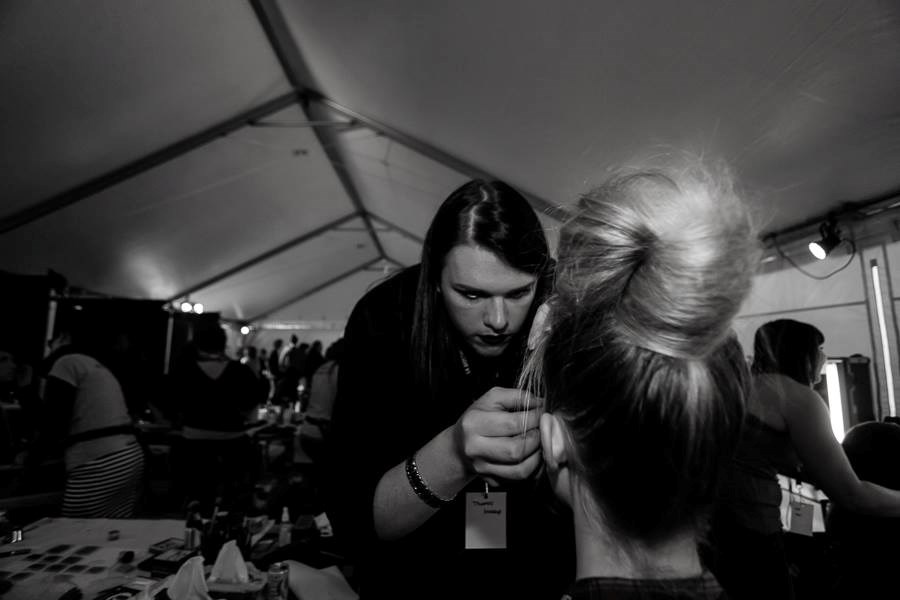Eco fashion week is arguably one of the best fashion shows Vancouver has to offer in terms of production. The choice to host the event at Robson Square allows onlookers to get an aerial view of the runway as the show commences. Small details integrated within the show allowed it to succeed into its seventh season in early October. Founder Myriam Laroche’s passion to spread awareness on consumption and textile waste has created strong eco partnerships between stylists, fashion writers, designers, product manufacturers and the City of Vancouver.
Laroche emphasizes that “we have reached a very unhealthy place and we want to present solutions.” It's not surprising since approximately 13 million tons of textiles are thrown away each year and only 15 per cent of the refuse is recycled (according to Mother Nature Network). It definitely makes you think twice about what we buy and the amount of clothes we’re discarding each year.
Each season, stylists take on the challenge to create runway-ready collections from Value Village using a budget of $500. Local designer Evan Ducharme also participated in the 68-pound challenge where — just as the title suggests — 68 pounds of textile waste from Value Village is transformed into a ready-to-wear collection. The rise in popularity of vintage has created a niche for designers to be more eco conscious and this is the opportunity to keep this topic at the forefront of people’s mind.
Favourites of the week included stylist Claire Bouvier’s runway show, which took us back in time with a blend of '50s postwar femininity and ’60s bohemian looks. The collection was both consistent and powerful mimicking looks fit for a Paris runway show. Bouvier is sending a strong message that vintage clothes can easily be revived into looks that are relevant. The hangers styled into the hair of models also created a nice touch to the overall look and feel of the show.
Designer Evan Ducharme’s collection was also a crowd favourite and took textile waste straight into the influence of contemporary fashion. Drawing on the concept of minimalism, Ducharme’s collection yielded a heavy emphasis on monochromes. This is a particularly difficult challenge because designers cannot rely exclusively on colours or prints to create an interesting look. Ducharme’s collection highlighted that ingenuity holds the key to the future of fashion, which is evolutionary more than revolutionary.
The final day of Eco Fashion Week was marked by New York designer/author Cornelia Guest who made a personal appearance at Holt Renfrew in Vancouver to showcase her cruelty-free bag collection. Her Nicolas Herringbone satchel is a personal favourite from her fall collection. Perhaps the most interesting aspect of Guest is her history as a philanthropist, debutante, actress, animal rights activist, author and now designer.
Just as all great things come to an end, Eco Fashion Week closed at Holt Renfrew in their H Project department, which is home for their own line of sustainable fashion. Eco Fashion Week’s message is clear that we need to change our habits in shopping. Last month, Bloomingdales fought back against “wardrobing” where consumers leave the tags on a purchase, wear it once and return it. With the advent of social media, 65 per cent of consumers report that they don’t prefer to be seen in the same clothing as something they were photographed in (on Instagram or Facebook), which is why they favour “wardrobing.” This has cost the industry a total of $8.8 billion last year, a portion of which included textile waste. Limiting the amount of textile waste is necessary and both the fashion market and consumers have a direct role in making a difference.
Amy Yew is a contributing columnist at Vancouver Courier and a fashion and style writer. Tell us what you think and submit any questions you have to amyvancouvercourier@gmail.com. You can also tweet your thoughts twitter.com/amyyew.



